Listen to the Past Speakers
Scott K. Cushing
California Institute of Technology - United States
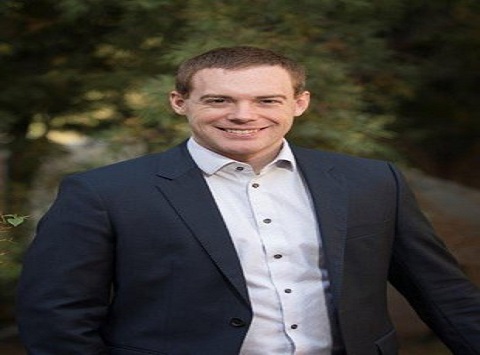
Scott K. Cushing
California Institute of Technology - United States Keynote
Scott Cushing is an Assistant Professor at Caltech with a multidisciplinary background spanning Chemistry, Materials Science, and Physics. His research focuses on the creation of new scientific instrumentation that can translate quantum phenomena to practical devices and applications. Scott has been awarded DOE, AFOSR, Rose Hill, and ACS related Early Career awards. The Cushing lab is currently pioneering the use of high-flux, compact sources of entangled photons for microscopy and spectroscopy, as well as exploring attosecond x-ray and time resolved EELS approaches. Scott holds multiple patents, some of which led to a solar energy company.
Zlatko Janeba
Institute of Organic Chemistry and Biochemistry - Czech Republic
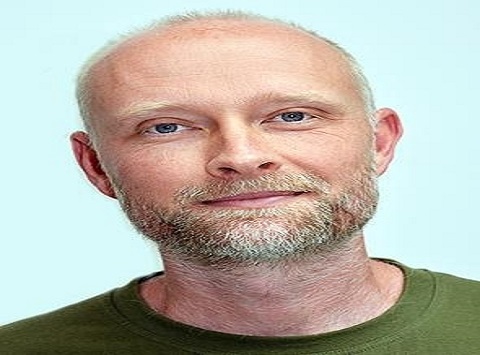
Zlatko Janeba
Institute of Organic Chemistry and Biochemistry - Czech RepublicKeynote
Dr. Zlatko Janeba earned his Ph.D. in 2001 in Organic chemistry from the Institute of Organic Chemistry and Biochemistry (IOCB) in Prague, the Czech Academy of Sciences. He underwent postdoctoral research training in the groups of Prof. Morris J. Robins at Brigham Young University and Prof. Paul F. Torrance at Northern Arizona University. He spent 3 years (02/2005 – 02/2008) as a senior scientist at Moravek Biochemicals, Inc. in California, one of the leading companies in the field of custom synthesis of radiolabeled compounds for pharmaceutical research. In 2008, he rejoined the research team of Prof. Antonín Holý at IOCB, and in March 2010 he established his Junior Research Group within IOCB. Since January 2016, he is the head of the Senior Research Group at IOCB. Current research of the group involves the design, synthesis, and SAR studies of modified nucleosides and nucleotides, as well as other heterocyclic compounds, with a wide range of biological properties, especially antiviral, anticancer, antibacterial, antiparasitic, and anti-inflammatory. He is a member of the International Society for Antiviral Research (ISAR); the International Society of Nucleosides, Nucleotides and Nucleic Acids (IS3NA); and the International Society of Heterocyclic Chemistry (ISHC).
He received the Petr Sedmera prize in 2016. Currently, Dr. Janeba serves as an associate editor of Antiviral Chemistry & Chemotherapy and is a member of the International Advisory Board of ChemMedChem. He has authored some 100 publications in internationally recognized scientific journals and he gave numerous invited talks worldwide.
Debasish Kuila
North Carolina A&T State University - United States
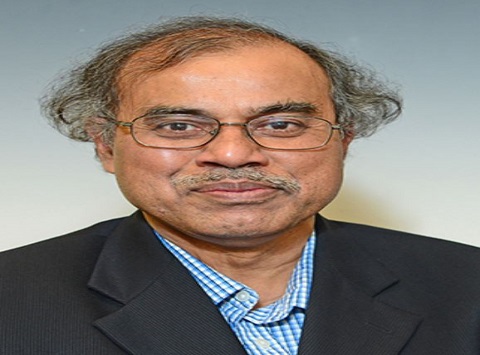
Debasish Kuila
North Carolina A&T State University - United StatesKeynote
Debasish Kuila, previous Chair and Professor of chemistry, is the Research Director of NSF-CREST Bioenergy Center at North Carolina A&T State University. He was an associate professor at Louisiana Tech and spent over 10 years at Hoechst Celanese and Great Lakes Chemical Corporations and Purdue University. His research interest spans from materials/biomaterials, cell biology, to catalysis. He received Chemcon Distinguished Speaker Award in 2019 in Jaipur, India. He has 12 US patents/applications and has been invited as keynote and plenary speakers for several international conferences.
Debashree Chakraborty
National Institute of Technology Karnataka - India
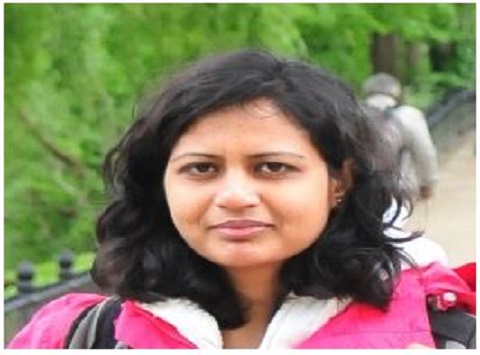
Debashree Chakraborty
National Institute of Technology Karnataka - IndiaDr. Debashree Chakraborty obtained her Ph.D. from the Indian Institute of Technology Kanpur in 2011. She has done her postdoctorate from the University of British Columbia, Vancouver Canada (2011-2013) and Institut de Biologie Physico-Chimique, Paris, France (2013-2015). Subsequently, she joined the National Institute of Technology Karnataka as Assistant Professor in 2015. Her main interest is in biophysics and protein dynamics. She worked in a variety of fields from voids in the liquids, spectral dynamics of hydrogen-bonded liquids, interfaces, nucleation of crystals to the stability of proteins, drug discovery.
Rohit Jain
Manipal University Jaipur - India
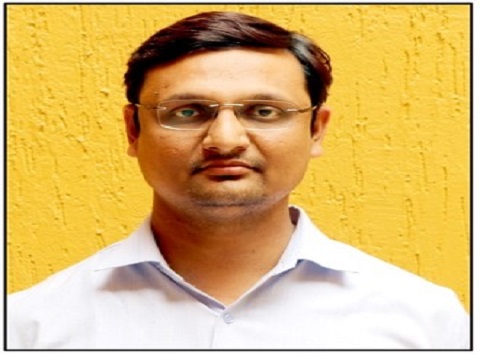
Rohit Jain
Manipal University Jaipur - IndiaDr. Rohit Jain is working as an Assistant Professor in the Department of Biosciences, Manipal University Jaipur, India. He has more than 9 years of teaching & research experience and has more than 20 high-impact peer-reviewed publications with i-10 and h- index of 11 and ~ 400 citations. He has also contributed chapters to books such as Springer Protocols, Brassica Improvement, Taylor & Francis - Crop Improvement and many more. Currently, he is working on metabolomics and transcriptomic analysis of medicinally important (endangered) plant species and has been able to publish a whole transcriptome sequence of in vitro raised plants of W. coagulans on the NCBI SRA database. He is the recipient of research grants worth ? 38.36 lakhs (INR) from various government and industry funding organizations. Dr. Jain is an enthusiastic researcher and is always passionate to explore the new in the field of life sciences through some quality collaborative and interdisciplinary research.
Yossi Paltiel
The Hebrew University of Jerusalem - Israel
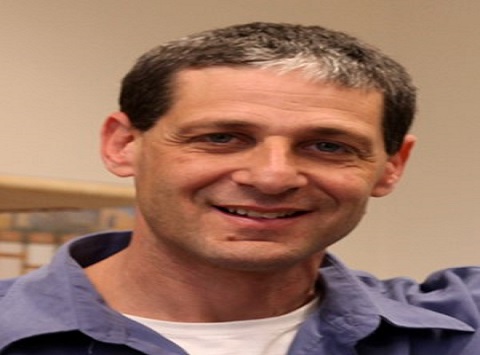
Yossi Paltiel
The Hebrew University of Jerusalem - IsraelProfessor Paltiel is in the Applied Physics Department at the Hebrew University of Jerusalem, Israel. He has worked for both leading high-tech industry groups and in the academic world. Paltiel's group’s goal is to establish a way to incorporate quantum mechanics into room-temperature devices. For example, we utilize chiral molecules as spin filters for achieving logic devices. Paltiel is involved in two startup companies; the first is named Valentis Nanotech founded in 2013. The 2nd company is named Kiralis founded in 2018. Kiralis uses magnetic surface interactions to achieve efficient chiral enantiomers separation. 1st place Kaye Innovation Awards winner.
Rebecca Appiani
University of Milan - Italy
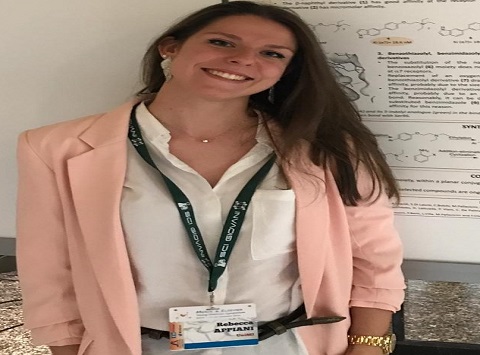
Rebecca Appiani
University of Milan - ItalyRebecca Appiani is a Ph.D. student at the University of Milan, Faculty of Drug Sciences, Department of Pharmaceutical Sciences.
Lioz Etgar
The Hebrew University of Jerusalem - Israel
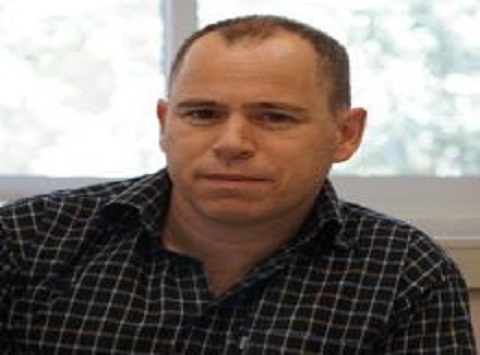
Lioz Etgar
The Hebrew University of Jerusalem - Israel Keynote
Prof. Etgar was the first to demonstrate the possibility to work with the perovskite as a light harvester and hole conductor in the solar cell which results in one of the pioneer publications in this field. Recently Prof. Etgar won the prestigious Krill prize from the Wolf foundation. Etgar’s research group focuses on the development of innovative solar cells. Prof. Etgar is researching new excitonic solar cells structures/architectures while designing and controlling the inorganic light harvester structure and properties to improve the photovoltaic parameters.
Lioz Etgar obtained his Ph.D. (2009) at the Technion–Israel Institute of Technology and completed post-doctoral research with Prof. Michael Grätzel at EPFL, Switzerland. In his post-doctoral research, he received a Marie Curie Fellowship and won the Wolf Prize for young scientists.
Since 2012, he has been a senior lecturer in the Institute of Chemistry at the Hebrew University.
In 2017 he received an Associate Professor position.
Peng Zhang
PetroChina Petrochemical Research Institute - China
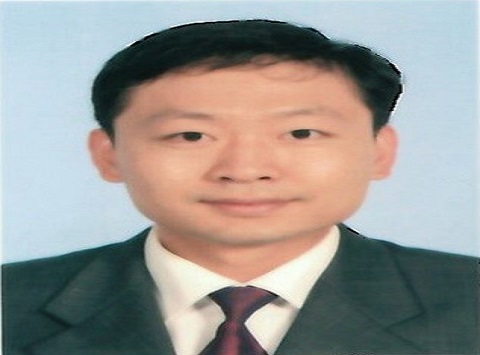
Peng Zhang
PetroChina Petrochemical Research Institute - ChinaDr. Peng Zhang (1980) obtained his Ph.D. from the China University of Petroleum. He has engaged in dehydrogenation & reforming catalysts and processes of petrochemicals for more than 15 years. Dr. Zhang innovatively discovered high-performance zeolite-type environmentally friendly reforming catalysts, which can avoid chlorine loss and equipment corrosion of traditional commercial alumina-type catalysts. He is a senior engineer and inventor on more than 30 patents. Dr. Zhang has the honorary title of Science and Technology Young Talent of PetroChina Petrochemical Research Institute.
Michal Bielejewski
Institute of Molecular Physics Polish Academy of Sciences - Poland
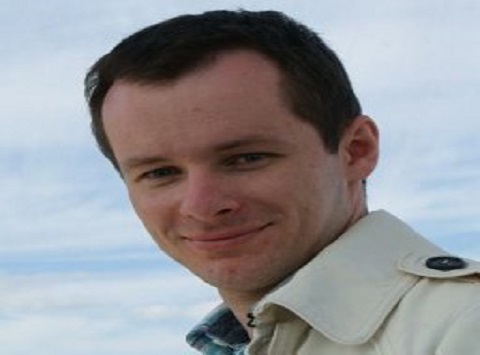
Michal Bielejewski
Institute of Molecular Physics Polish Academy of Sciences - PolandDr. Michal Bielejewski, working as Assis Professor in Institute of Molecular Physics Polish Academy of Sciences. His interests are focused on molecular dynamics in soft materials, especially in molecular gels and ionogels. Moreover investigations of phase transitions, gel formation, and its thermal, conductive, and mechanical properties. The experimental techniques which he uses every day are NMR spectroscopy, NMR relaxometry, NMR diffusometry, thermal scanning conductometry, vibrational viscometry, optical polarizing microscopy.
Jingbo Louise Liu
Texas A&M University-Kingsville - United States
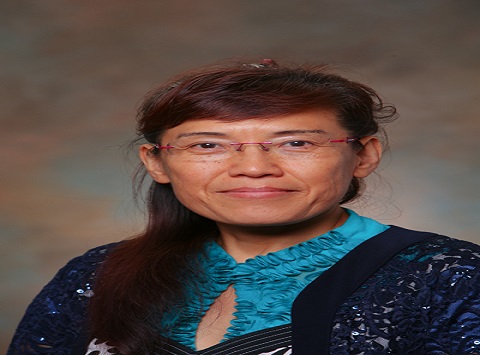
Jingbo Louise Liu
Texas A&M University-Kingsville - United StatesProfessor Jingbo Louise Liu received her Ph.D. in Materials Science and Engineering (with a focus on materials chemistry) from the University of Science and Technology Beijing in 2001 and completed her postdoctoral fellowship in the Department of Chemistry (focus on electrochemistry and alternative energy), the University of Calgary in 2004. She was promoted to a tenured Full Professor at Texas A&M University-Kingsville (TAMU-K) in 2016 and affiliated with the TAMU Energy Institute in 2019. The promotion and affiliation were due to her productivity for nanostructured materials preparation, characterization, understanding of the properties and applications of engineered nanomaterials in alternative energy and biological science. She has been hosting 15+ visiting scholars and taught > 10,500 students; trained > 150 undergraduates and 35 graduate students. She served as the National Science Foundation panelist & chair, journal editor, and also as a reviewer for dozens of journals. Dr. Liu participated in and directed more than 40 sponsored projects, supported by the NSF; R. Welch Foundation; Department of Education; Petroleum Research Fund of American Chemical Society (ACS); and TAMU Energy Institute & TAMU-Kingsville. She published more than 100 journal articles, books, and book chapters. Being a Directed Energy Bio-effects Institute (DEBI) faculty fellow at the US Air Force Research Laboratory, she co-filed 2 patents (more than 20 claims per patent) with Air Force scientists to address clinical prevention and healthcare concerns. Due to her leadership in chemical sciences and engineering, she was awarded the distinction of Chartered Scientist by the Science Council and Chartered Chemist by the Royal Society of Chemistry (RSC). Recently, she was elected as the Fellow of the International Association of Advanced Materials (FIAAM), Fellow of Vebleo (Science Engineering and Technology), and Fellow of RSC, in addition to the Japan Society for the Promotion of Science (JSPS) invitation Fellow and Israel Summer Faculty Fellow.
Lihan Zhu
Northeast Normal University - China
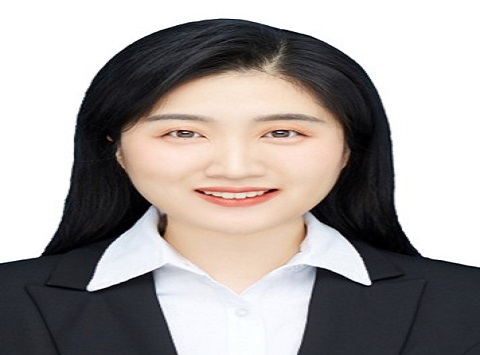
Lihan Zhu
Northeast Normal University - ChinaLihan Zhu obtained her BSc (Chemistry) from Liaoning University and she is studying as a Ph.D. student in the Northeast Normal University. She used to study at the National University of Singapore as a joint Ph.D. student. Her main interest is to disclose the mechanisms of organic reactions and the origin of enantioselectivity for asymmetric reactions by computational methods. During her industrial career, she has verified the effective
Thomas J. J. Müller
Heinrich-Heine-Universität Düsseldorf - Germany
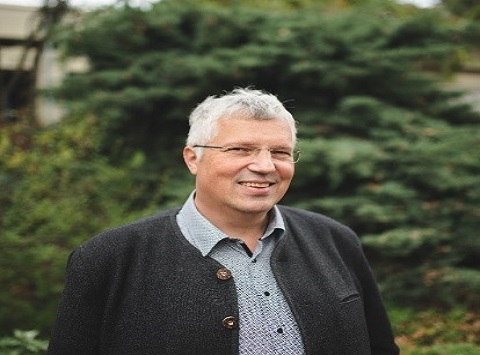
Thomas J. J. Müller
Heinrich-Heine-Universität Düsseldorf - GermanyProf. Thomas J. J. Müller studied chemistry at Ludwig-Maximilians-Universität München (LMU) from 1984 to 1989, obtained his diploma in 1989 and completed his Ph. D. in 1992. After a post-doctoral stay with Prof. B. M. Trost at Stanford University in 1993/1994, he returned to Germany. From 1994-1999 he developed his independent research at Technical University Darmstadt and LMU as a Liebig and DFG scholar. After his habilitation in 2000 and a short time as a lecturer at LMU he was an associate professor of organic chemistry at Ruprecht-Karls-Universität Heidelberg from 2002 to 2006. Since 2006 he is a full professor and director of insitute at Heinrich-Heine-Universität Düsseldorf. Since 2019 he is the spokesman of the DFG-funded Research Training Group 2482. His research interests encompass synthetic heterocyclic chemistry, functional chromophores, and the design of novel multi-component and domino reactions. He is an author of more than 300 journal articles and book chapters.
Gilliani Peixoto Miranda
National Institute of Technology - Brazil
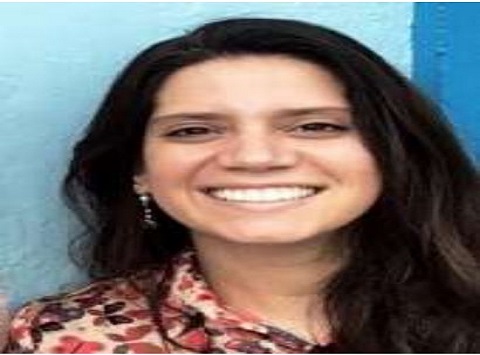
Gilliani Peixoto Miranda
National Institute of Technology - BrazilGilliani P. Miranda is a chemical engineer and got her M.Sc. degree at the Federal University of Rio de Janeiro (UFRJ), Brazil. She has developed research studies devoted to chemical process transformation, especially the ones concerning sustainable routes (biomass and ethanol), catalytic conversion of CO2 for syngas production, and some others in the heterogeneous catalysis field. Moreover, she has also developed technological studies in partnership with the productive sector, such as the cosmetic and health care segment with multinational companies like L’Oréal. She is currently part of Dr. Fabiana Mendes’s team at the National Institute of Technology (INT) and develops efforts on new oxidation catalysts formulation, using activated carbon obtained from sugar cane straw, applied to the selective oxidation of propane.
Ryo Yamada
Osaka University - Japan
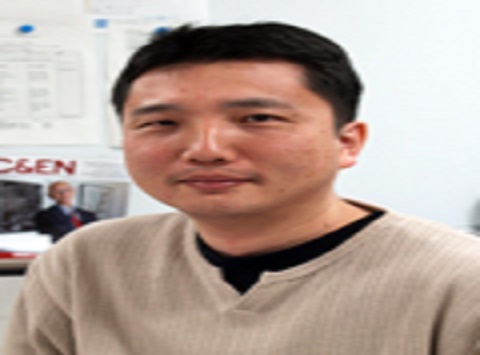
Ryo Yamada
Osaka University - JapanDr. Ryo Yamada obtained Ph. D in physical chemistry from the Hokkaido University in 1999 and is currently an associate professor at Osaka University. His research interests are physical chemistry of solid/liquid interface, scanning probe microscopy, self-assembled monolayers, and single-molecule electronics.
B. Frank Gupton
Virginia Commonwealth University - United States
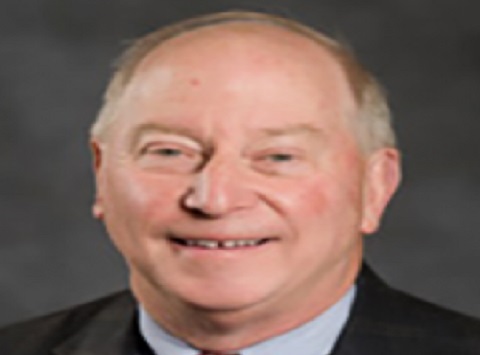
B. Frank Gupton
Virginia Commonwealth University - United States Keynote
Prof. B. Frank Gupton, Ph.D., is an internationally recognized scholar and industry expert. After attending the University of Richmond on a basketball scholarship, he received his master’s degree from Georgia Tech. He earned his doctorate in chemistry at Virginia Commonwealth University.
His 31-year industry career included senior positions with the Hoechst-Celanese Corporation and Boehringer-Ingelheim. In 2007, Gupton retired as executive director of process development for Boehringer-Ingelheim Pharmaceuticals.
Gupton then joined the VCU College of Engineering faculty and became the Floyd D. Gottwald Junior Chair in Pharmaceutical Engineering in 2016. His research focuses on improving global health care by making pharmaceutical production cleaner and more cost-effective. To help advance these goals, he founded the Medicines for All Institute (M4ALL) with a simple idea: expand global access to lifesaving medications by producing them more efficiently.
An inventor on multiple patents, including one for his work to produce nanoparticle catalysts supported on graphene, Gupton is a National Academy of Inventors Fellow. He received the Billy R. Martin Award for Innovation in 2017.
For his efforts with M4ALL to develop cost-saving methods to produce the anti-HIV drug nevirapine, he won the 2019 Peter J. Dunn Award from the American Chemical Society (ACS). For that work, he and M4ALL chief technology officer D. Tyler McQuade, Ph.D., also won the 2018 ACS Green Chemistry Challenge Award and the 2018 ACS Award for Affordable Green Chemistry. The institute is working with a manufacturer in South Africa and partnering with the government of Ivory Coast to bring these advances to the places they are most needed.
Douglas McCloskey
Biosustain, DTU - Denmark
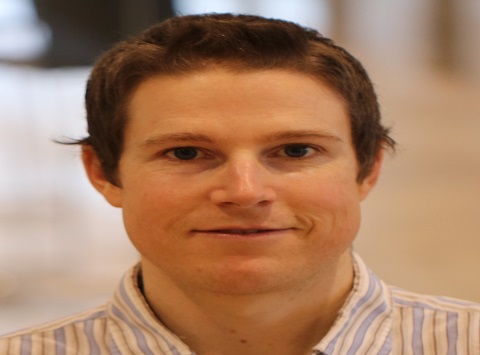
Douglas McCloskey
Biosustain, DTU - DenmarkDouglas McCloskey obtained his Ph.D. 2017 in bioengineering in the lab of Bernhard O. Palsson at the University of California, San Diego. During his studies, he was awarded the prestigious Siebel’s Scholars Foundation grant. Douglas McCloskey is currently a group leader at the NNF Center for Biosustainability (CfB) at the Technical University of Denmark. At the CfB, He is leading a group of automation engineers, software engineers, and analytical chemists to develop Big –Omics data generation workflows and leading a group of PhDs and Postdocs to develop advanced machine learning and biochemical modeling algorithms to learn from Big –Omics data.
Zlatko Janeba
Institute of Organic Chemistry and Biochemistry - Czech Republic
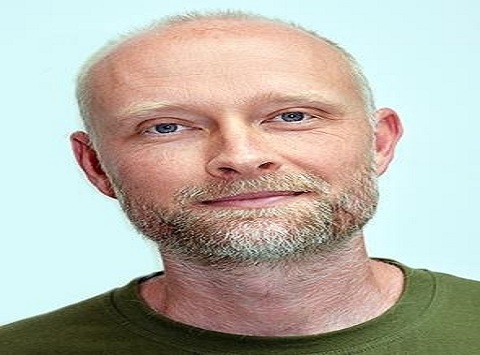
Zlatko Janeba
Institute of Organic Chemistry and Biochemistry - Czech Republic Keynote
Dr. Zlatko Janeba earned his Ph.D. in 2001 in Organic chemistry from the Institute of Organic Chemistry and Biochemistry (IOCB) in Prague, the Czech Academy of Sciences. He underwent postdoctoral research training in the groups of Prof. Morris J. Robins at Brigham Young University and Prof. Paul F. Torrance at Northern Arizona University. He spent 3 years (02/2005 – 02/2008) as a senior scientist at Moravek Biochemicals, Inc. in California, one of the leading companies in the field of custom synthesis of radiolabeled compounds for pharmaceutical research. In 2008, he rejoined the research team of Prof. Antonín Holý at IOCB and in March 2010 he established his Junior Research Group within IOCB. Since January 2016, he is the head of the Senior Research Group at IOCB. Current research of the group involves design, synthesis and SAR studies of modified nucleosides and nucleotides, as well as other heterocyclic compounds, with a wide range of biological properties, especially antiviral, anticancer, antibacterial, antiparasitic, and anti-inflammatory. He is a member of International Society for Antiviral Research (ISAR); International Society of Nucleosides, Nucleotides and Nucleic Acids (IS3NA); and International Society of Heterocyclic Chemistry (ISHC).
He received the Petr Sedmera prize in 2016. Currently, Dr. Janeba serves as an associate editor of Antiviral Chemistry & Chemotherapy and is a member of International Advisory Board of ChemMedChem. He has authored some 100 publications in internationally recognized scientific journals and he gave numerous invited talks worldwide.
Ahmed Shafique
VITO (Flemish Institute for Technological Research) - Belgium
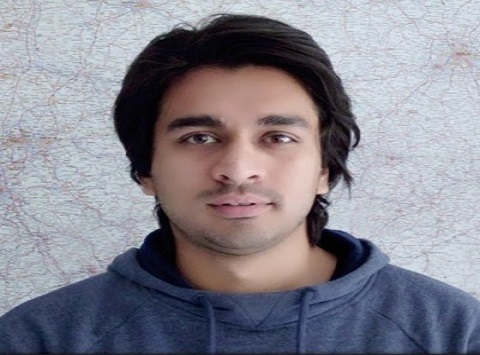
Ahmed Shafique
VITO (Flemish Institute for Technological Research) - BelgiumAhmed Shafique graduated from Ulm University Germany with a Masters in Advanced Materials, whereby, specialization in battery and nanotechnology. Prior to joining Ulm University, he attained a Bachelor’s degree in Chemical Engineering from COMSATS Institute of Information Technology in Pakistan and graduated with the highest distinction. For the past three years, he is working as Ph.D. Research Assistant at VITO/UHasselt Belgium. His research entailed a detailed analysis of synthesis, surface coating and electrochemical characterization of cathode materials for lithium-sulfur batteries and the results illustrated how advanced strategies are required to improve the stability of the material and reduce the aging phenomena in the cell.
Jan Sýkora
Institute of Chemical Process Fundamentals - Czech Republic
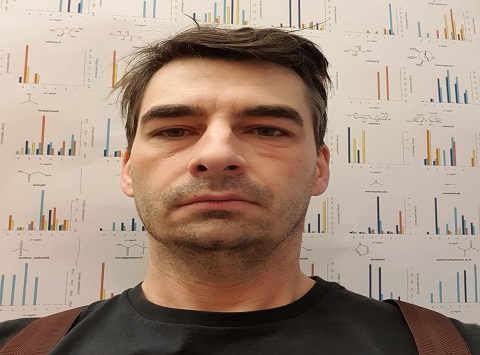
Jan Sýkora
Institute of Chemical Process Fundamentals - Czech RepublicJan Sykora graduated from the University of Chemical Technology in Prague in 2002 in the field of X-ray crystallography. Before completing his Ph.D., he joined the NMR laboratory at the Institute of Chemical Process Fundamentals of the Czech Academy of Sciences in Prague to undergo extensive training in heteronuclear NMR. His professional focus is placed on the analysis of complex mixtures such as extracts of natural substances or crude reaction mixtures. In recent years, he has focused on the use of NMR spectroscopy in the analysis of body fluids and aerosol samples. Since 2009 he has been working as the head of the Department of Analytical Chemistry and since 2012 also as the Deputy Director of the Institute of Chemical Process Fundamentals.
Ananta Kumar Atta
National Institute of Technology Arunachal Pradesh - India
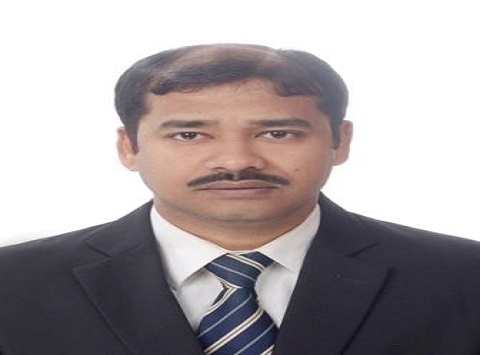
Ananta Kumar Atta
National Institute of Technology Arunachal Pradesh - IndiaDr. Ananta Kumar Atta is a senior Assistant Professor (Grade I) of Chemistry at the National Institute of Technology (NIT) Arunachal Pradesh, India. He received his Ph.D. degree in 2010 from the Indian Institute of Technology-Kharagpur (IIT-KGP) in carbohydrate chemistry. He pursued his postdoctoral studies with Prof. Dong Gyu Cho at Inha University, Incheon, South Korea in supramolecular chemistry from 2010 to 2013. He has been awarded DST-Young Scientist Award in 2015 and elected as a fellow of the Indian Chemical Society (FICS) in 2019. His current research schemes mainly focus on sugar-modified chemosensors for the detection of heavy metal ions and nitroaromatics, synthesis of low-molecular-weight organogelators (LMWOs), and carbohydrate-based fluorometric carbon quantum dots for various applications. Recently, he has given invited talk in Analyticon 2020, San Francisco, CA, USA and Molecules to Materials, SVNIT Surat, India
Rajendar Goreti
Indian Institute of Science Education and Research Thiruvananthapuram - India
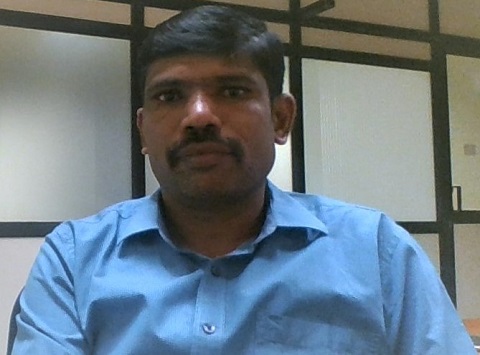
Rajendar Goreti
Indian Institute of Science Education and Research Thiruvananthapuram - IndiaAkira Naito
Yokohama National University - Japan
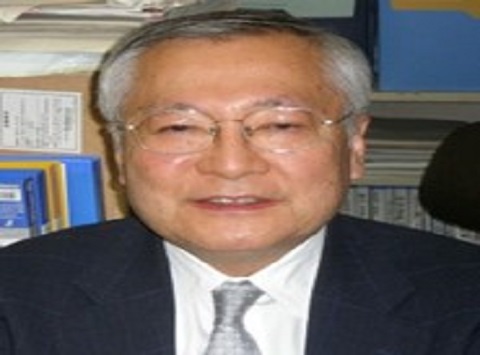
Akira Naito
Yokohama National University - JapanDr. Akira Naito serves as a professor emeritus with Yokohama National University, where he previously excelled as a professor from 2001 to 2015. Additionally, he channels years of expertise into his work as the director of the Instrumental Analysis Center at the aforementioned university. He has provided his research to a plethora of articles published in the fields of “Structurer determination of photoreceptor membrane proteins by solid-state NMR”, “Dynamic membrane interaction of anitimicrbial peptides and membrane proteins”, “Characterization of the amyloid fibril formation of hCT and glucagon” and “Developments of new solid-state NMR methods”.
Erum Jabeen
Allama Iqbal Open University - Pakistan
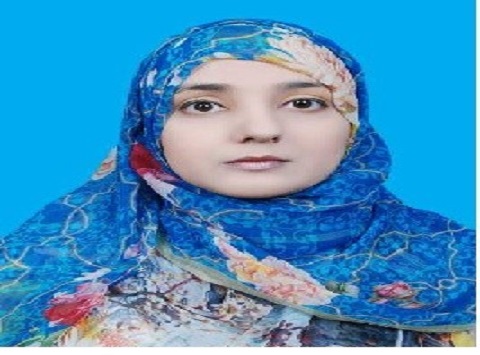
Erum Jabeen
Allama Iqbal Open University - PakistanDr. Erum Jabeen currently working as Lecturer at the Department of Chemistry, Allama Iqbal Open University, Islamabad Pakistan. She got her Ph.D. with specialization in Physical Chemistry from Quaid-i-Azam University Islamabad Pakistan in 2017. She got her MPhil in physical chemistry (2012) and MSc in physical chemistry (2010) from Quaid-i-Azam University Pakistan. During her stay at Quaid-i-Azam University Islamabad, she won QAU merit scholarship 2008-2010, 1st position award 2010, and HEC indigenous scholarship 2012-2017. Currently, her research focuses on biosensor fabrication for hydroxyl radical sensing, electrode modifications for electrochemical enzyme kinetic assays and electrochemical enantioseparation techniques. She is also working on DNA binding and antioxidant investigations for versatile applications. She won “AIOU research publication grant 2020-2021” at Allama Iqbal Open University Islamabad Pakistan.
Markus Baenziger
Novartis Pharma AG - Switzerland
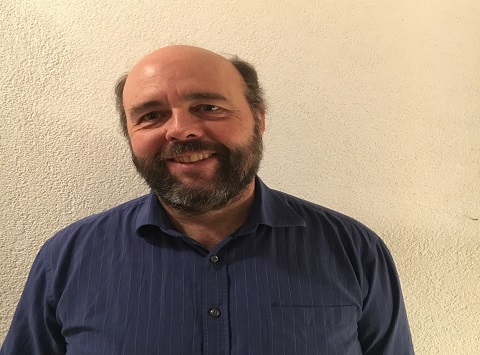
Markus Baenziger
Novartis Pharma AG - SwitzerlandMarkus Baenziger has more than 25 years’ experience as an industrial chemist in the Chemical, Analytical Development of Sandoz, and later Novartis in Basel (Switzerland) as a lab chemist. He gained experience as a process chemist in the Pilot plant and Kilo plant during job rotations (six to twelve months). He is the author or co-author of 21 peer-reviewed scientific journals (orcid.org/0000-0003-1021-1680) and contributor to 8 patents. He had the scientific lead and was the project coordinator of CRO’s, custom manufacturer and internal GMP manufacturing on the project LSZ102.
Antoine Jay
Université de Toulouse - France
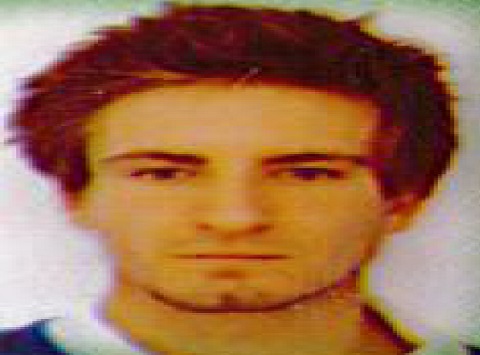
Antoine Jay
Université de Toulouse - FranceAntoine Jay is a contractual researcher at LAAS-CNRS in Toulouse, France, in the team named Multiscale Modelisation of Materials. He is modeling the irradiation processes that destroy the electronic components: from the collision cascade to the electron-hole generation rate of defects. He has developed the ARTn-DFT coupling in order to obtain all the metastable configurations of defects and their flickering transition rate. Today, he also uses this new tool to simulate diffusion paths or surface reactions.
Diana Tranca
Shanghai Jiao Tong University - China
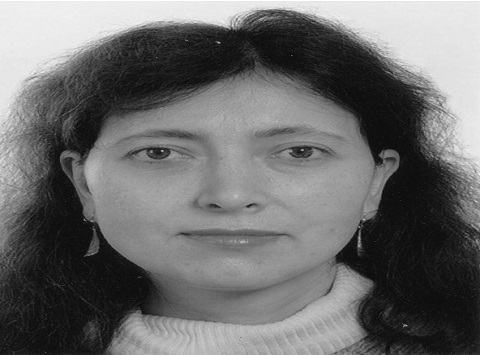
Diana Tranca
Shanghai Jiao Tong University - ChinaDr. Diana Tranca did her Master in Physics at the Free University Berlin and she obtained her Ph.D. from Max-Planck for Biophysical Chemistry, Göttingen, Germany. After her Ph.D., she was working as a theoretical chemist at different prestigious universities in Europe or in the United States like Berkley University, California, United States, Sorbone University, Paris, France or Technical University in Hamburg and also in Dresden. Her main interest lies in computational researchers with interest and extended experience in studying porous materials, electro/photo-catalytic processes and surface functionalization, research towards a systematic and rational design of materials for energy applications. She gained practical experience in a multi-scale modeling approach, supporting experimentalists in elucidating reaction mechanisms, rate-limiting steps, thermodynamics. Experience also in computation of other experimentally relevant quantities like IR spectrum, STM images, UPS spectra, work functions, etc. Her experience includes also in teaching and mentoring Master and Ph.D. students.
Haralampos N. Miras
University of Glasgow, Scotland - United Kingdom
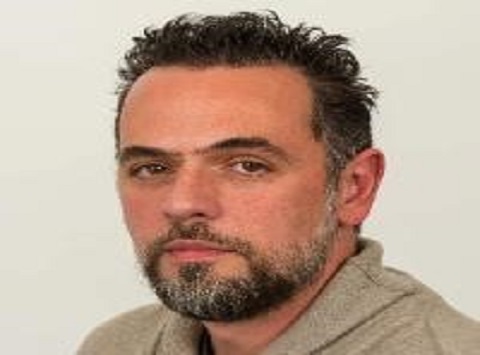
Haralampos N. Miras
University of Glasgow, Scotland - United KingdomKeynote
H. N. Miras is an associate professor in Chemistry at the University of Glasgow. His research is focused on the discovery of simple preparation routes to the metal oxide/chalcoxide-based composite functional materials as well as the understanding of fundamental processes in the self-assembly of supramolecular clusters and molecular nanomaterials with modular magnetic, redox, electronic, conductive and catalytic properties.
Chun Ho (Jason) LAM
City University of Hong Kong - Hong Kong
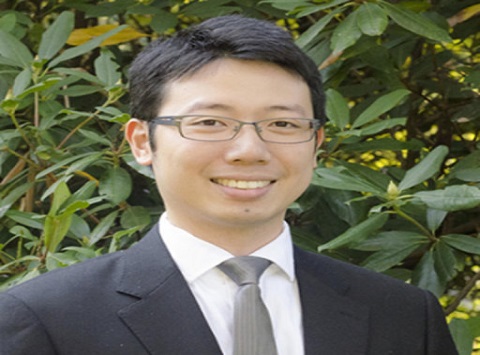
Chun Ho (Jason) LAM
City University of Hong Kong - Hong KongDr. Lam is an educator and an environment enthusiast. He has mentored numerous undergraduate researchers at MSU and Yale, as well as high school students in the MSU High School Honours Science Program (HSHSP). Dr. Lam has also been invited to design and teach an online certificate program on the practice of green chemistry to a diverse body of professional students in the University of Washington’s Continuing Education Programs. Dr. Lam will begin his CityU School of Energy and Environment appointment in July 2019, he is currently a visiting assistant professor at Wesleyan University. Dr. Lam’s research focuses on turning industrial waste and non-edible biomass into useful liquid fuel and materials through chemical and electrochemical catalysis. He is also interested in exploring creative means to replace harmful chemicals with benign alternatives, and in promoting the use of recyclable or biodegradable materials that may be returned to nature with minimal or no post-treatment at the end of their useful lives.
Ahmed Abdala
Department of Chemical Engineering, Doha - Qatar
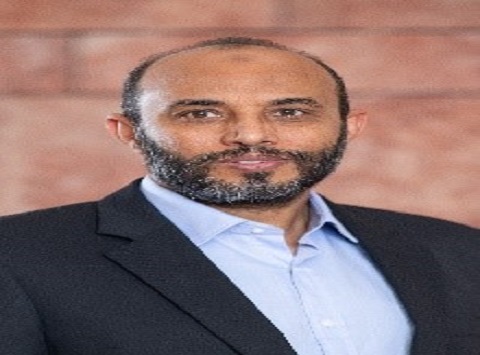
Ahmed Abdala
Department of Chemical Engineering, Doha - QatarDr. Abdala is an associate professor at Chemical Engineering Program, Texas A&M University at Qatar. His research focuses on the development of advanced materials for energy and environmental applications based on polymers and nanomaterials, including functional nanocomposites, functionalized nanomaterials, anticorrosion coatings, polymeric membranes for gas separation and water treatment, and nanohybrids of metal/metal oxides and 2D carbon nanomaterials for catalysis, adsorption, energy storage, and thermoelectric materials. He published 81 peer-reviewed journal articles (H-index=35, total citations=14400) and granted 7 US patents. He is the recipient of the Distinguished Researcher Award from the Indian Association of Solid-State Chemists & Allied Scientists (ISCAS) in 2019, the Qatar Excellence in Innovation Award from Thomson Reuters in 2016, and the Science Lantern Faculty Award from Abu Dhabi National Oil Company (ADNOC) in 2014.
Vladimiro Mujica
Arizona State University - United States
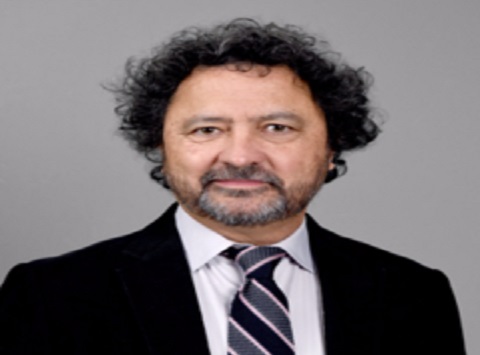
Vladimiro Mujica
Arizona State University - United StatesKeynote
Vladimiro Mujica got his chemistry degree at the Central University in Caracas, Venezuela, and his Ph.D. at Uppsala University in 1985. Thereafter he was a Postdoctoral Fellow at Tel-Aviv University in 1987. He has been a Visiting Professor to the Donostia International Physics Center, and the universities of Sao Paulo, Uppsala, Paris at Orsay, Tel-Aviv, Northwestern, Marseilles, KIAS, Fritz-Haber Institute, and NIST. In 2009, he joined the School of Molecular Sciences at ASU, where he is now a Full Professor. His areas of expertise include the theory of quantum relaxation and transport phenomena in the mesoscopic system, molecular electronics, spintronics and nanophotonics.
Marion ERNY
Polypeptide Strasbourg - France
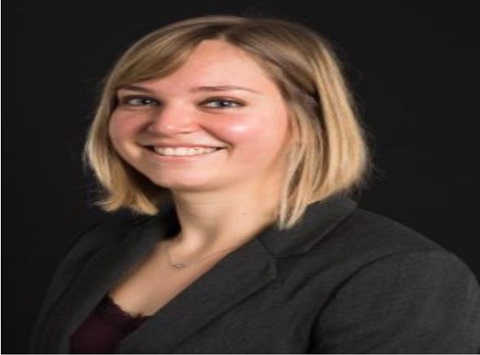
Marion ERNY
Polypeptide Strasbourg - FranceMarion ERNY studied in Rennes (France) and Stuttgart (Germany), where she received respectively a degree in engineering and an MSc in chemistry in 2017. After a first professional experience in Germany, she joined the Innovation team of PolyPeptide Group as R&D Chemical Engineer in 2019. She is currently performing a Ph.D. thesis at PolyPeptide, under the supervision of Dr. Frédéric Bihel (University of Strasbourg) and Dr. Olivier Ludemann-Hombourger (PolyPeptide Group). She is working on the development of green strategies for peptide manufacturing.
Nathan E. Hudson
East Carolina University, Greenvill - United States
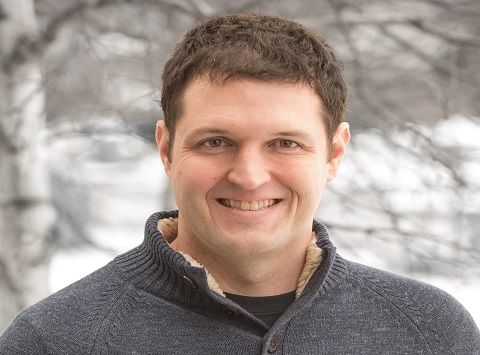
Nathan E. Hudson
East Carolina University, Greenvill - United StatesNathan E. Hudson is an Assistant Professor in the Department of Physics and an Adjunct Assistant Professor in the Department of Biology at East Carolina Univerisity. He served as the interim co-director of the East Carolina University Biomaterials Research Cluster. He is recognized nationally and internationally for his research in biophysics and biopolymers, particularly within the field of hemostasis.
Hannes P. L. Gemoets
Creaflow - Belgium
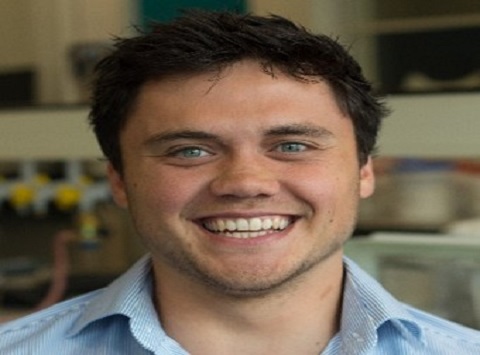
Hannes P. L. Gemoets
Creaflow - Belgium Keynote
Hannes P. L. Gemoets was born in Ghent, Belgium. He received an M.Sc. degree in Chemical Engineering (cum laude) at the KU Leuven (Faculty of Engineering Technology Ghent). He moved to the Netherlands to pursue his Ph.D. at the Eindhoven University of Technology (TU/e) in the Micro Flow Chemistry & Process Technology group, under the supervision of Prof. Timothy Noël and Prof. Volker Hessel. His research focused on the development of novel continuous-flow methods for C–H functionalization strategies (i.e. C–H activation and photoredox catalysis). As the next step in his career, Hannes joined the Research & Development division of Creaflow located in Deinze, Belgium. As R&D Director, his work focuses on the design and development of innovative and scalable continuous-flow (photo)reactors, as well as the worldwide sales of the HANU™ Flow Reactor.
A. Wouter Maijenburg
Martin-Luther-University Halle-Wittenberg - Germany
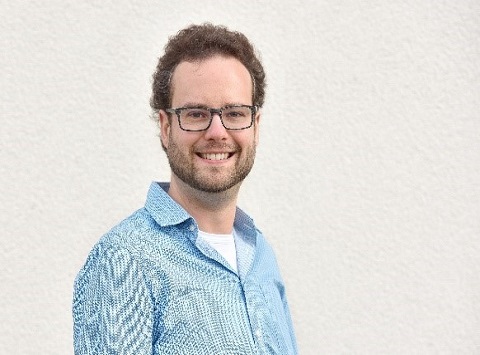
A. Wouter Maijenburg
Martin-Luther-University Halle-Wittenberg - GermanyKeynote
Prof. Dr A. Wouter Maijenburg obtained his PhD degree from the University of Twente (Enschede, The Netherlands) in 2014. After working for 2 years as a postdoctoral researcher at the GSI Helmholtz Centre for Heavy Ion Research (Darmstadt, Germany), in October 2016 he became a Junior Professor at the Martin Luther University Halle-Wittenberg. Here, he holds the chair of Inorganic Functional Materials within the Department of Chemistry and he is the leader of the Light for Hydrogen group within the Centre for Innovation Competence (ZIK) SiLi-nano. His research is mainly focused on the nanostructure design for solar water splitting.
Juan Manuel Peralta Herández
Universidad de Guanajuato - México
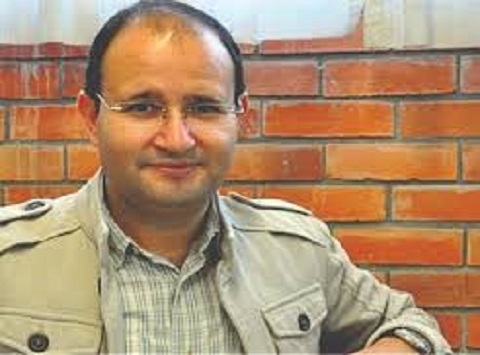
Juan Manuel Peralta Herández
Universidad de Guanajuato - México Keynote
Juan Manuel Peralta Herández, Since 2015 has a full Professor and researcher in the Chemistry Department at Guanajuato University, Mexico. He is a Principal Investigator at Environmental Electrochemistry Lab. He works at the university-industry interface where he is recognized nationally and internationally for his research contributions and achievements in Electrochemistry Advanced Oxidation Processes, nanomaterials and Fenton reactions. Currently has 83 papers published in JCR journals and an h index of 29, their papers have been cited 2,600 times.
Adrian Boey
Department of Pharmacy, National University of Singapore - Singapore
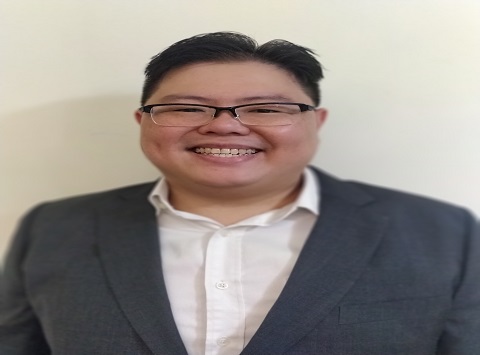
Adrian Boey
Department of Pharmacy, National University of Singapore - SingaporeDr. Adrian Boey obtained his doctorate from the University of Melbourne in 2011, where he studied the transcriptional regulation of cytochrome P450s in the vinegar fly, Drosophila melanogaster. Currently, he is a postdoctoral fellow working on using nanoparticles as potential therapeutic agents to alleviate hepatic disease states at the Department of Pharmacy, National University of Singapore.
Goreti Rajendar
Indian Institute of Science Education and Research Thiruvananthapuram - India
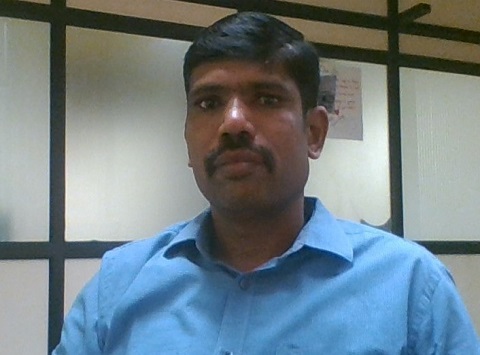
Goreti Rajendar
Indian Institute of Science Education and Research Thiruvananthapuram - IndiaDr. Rajendar is an Assistant Professor in the School of Chemistry in IISER-Trivandrum. He is working on the total synthesis of natural products, asymmetric catalysis, developing new synthetic methodologies for C-C and C-X bonds and medicinal chemistry. He is the recipient of the Ramanujan Research Grant, Early Career Research Award from SERB Govt. Of India.
Scott G. Sayres
Arizona State University - United States
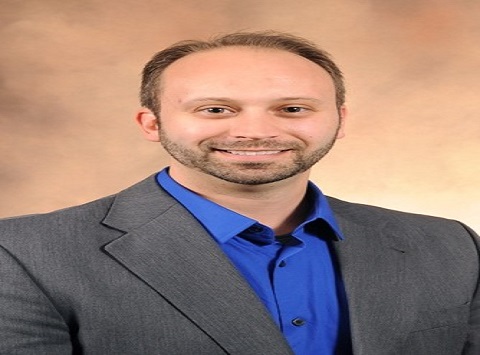
Scott G. Sayres
Arizona State University - United StatesScott Sayres is an Assistant Professor in the School of Molecular Sciences and Biodesign Center for Applied Structural Discovery at Arizona State University, with a multidisciplinary background spanning Chemistry, Materials Science, and Physics. His research focuses on applying ultrafast laser spectroscopy to understand how electronic and vibrational dynamics influence the chemical and physical properties of molecules and clusters. He also works to develop new materials based on the assembly of clusters. Sayres received his Ph.D. at The Pennsylvania State University working on strong-field ionization dynamics and did a Postdoc at UC Berkeley working on attosecond phenomena before coming to ASU.
Maria Manuel B. Marques
NOVA School of Science and Technology - Portugal
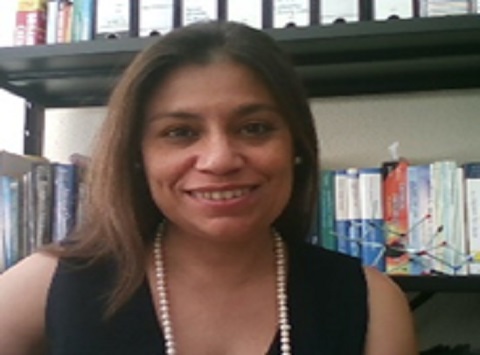
Maria Manuel B. Marques
NOVA School of Science and Technology - PortugalMaria Manuel Marques received her Ph.D. in organic chemistry in 2001 under the supervision of Prof. Dr. S. Prabhakar. From 2001 to 2003 she joined the group of Prof. Dr. J. Mulzer at the Institute of Organic Chemistry at the University of Vienna, as a postdoctoral research fellow. In 2003, she returned to the Faculty of Science and Technology, New University of Lisbon (Requimte) as a research fellow and invited professor. In 2016 she obtained her Habilitation in Chemistry. Her research encompasses the development of new synthetic and sustainable methodologies involving metal-catalyzed reactions towards bioactive compounds, in particular heterocyclic molecules.
Kim-Marie Vetter
Siemens Energy, Technical University of Munich and Catalysis Research - Germany
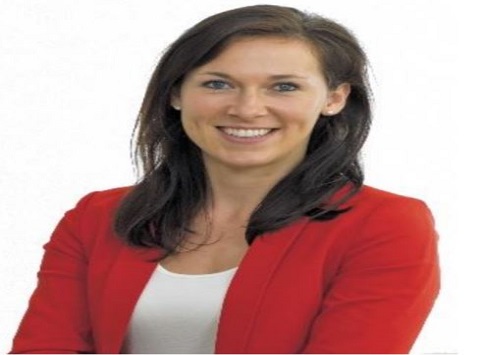
Kim-Marie Vetter
Siemens Energy, Technical University of Munich and Catalysis Research - GermanyKim-Marie Vetter obtained her BSc (Chemistry) and her MSc (Chemistry) from the Technical University of Munich (TUM). She started working on her Ph.D. in the field of PEM water electrolysis with Siemens and TUM in 2018.
Trang Vu
University of Cincinnati - United States
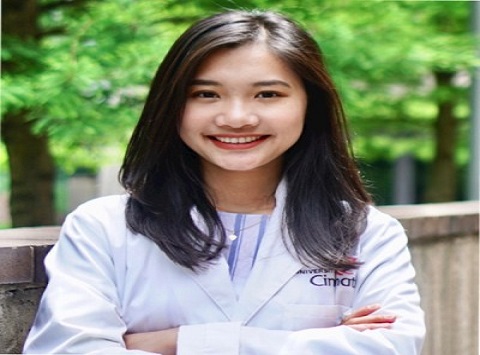
Trang Vu
University of Cincinnati - United StatesArjun Saha
University of Southern California - United States
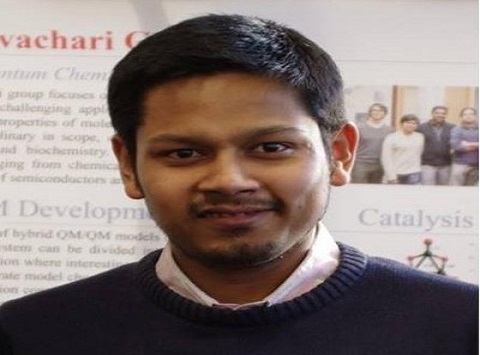
Arjun Saha
University of Southern California - United StatesArjun Saha is a Postdoctoral Researcher at the University of Southern California. He is a computational chemist. His research focuses on new developments in electronic structure theory along with challenging applications to investigate structures/reactivity relationship of molecules and materials. The work is collaborative and multidisciplinary in scope, covering the areas of chemistry, physics, materials science and biochemistry. My research topic covers a broad spectrum of applications ranging from chemical bonding in small clusters to computational investigations of semiconductor and nanoscale materials.
Frantisek Hnilicka
Czech University of Life Sciences Prague - Czech Republic
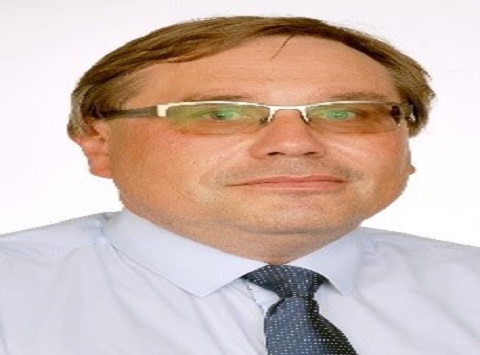
Frantisek Hnilicka
Czech University of Life Sciences Prague - Czech RepublicDr. František Hnilicka is the head of the Department of Botany and Plant Physiology of the FAFNR, Czech University of Life Sciences in Prague. He is an associate professor in the field of general plant production. He is currently the team leader of the EU-Project "NutRisk Center". His scientific focus is the primary metabolism of plants, transport of assimilates, combustion calorimetry and stress physiology of plants. Within the stress physiology of plants, it focuses on the influence of abiotic stressors and anthropogenic effects on the physiological parameters of field crops and vegetables.
Dace Rasina
Latvian Institute of Organic Synthesis - Latvia
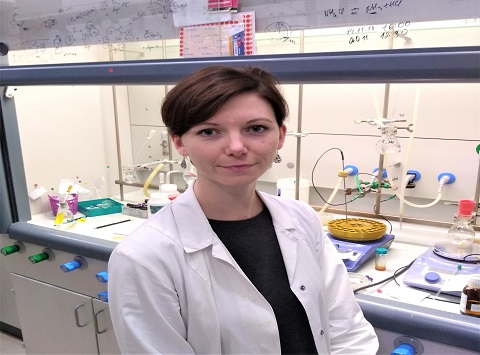
Dace Rasina
Latvian Institute of Organic Synthesis - LatviaDace Rasina is a Principal Researcher at the Latvian Institute of Organic Synthesis. Her previous research was mainly associated with medicinal chemistry projects and the development of new nonpeptidomimetic inhibitors of Plasmepsins as potential antimalarial drug candidates. She has contributed to the development of C-H activation methods and the stereoselective synthesis of threoninols using allyl carbenium ion amination. During the internship at the University of Perugia, she has raised her knowledge in the development of green chemistry methodology. Currently, she is doing her post-doctoral research in the field of natural products, specifically derivatization of β-caryophyllene.
Chih-Feng Wang
Pacific Northwest National Laboratory - United States
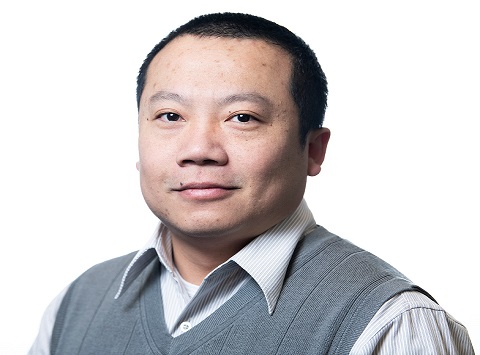
Chih-Feng Wang
Pacific Northwest National Laboratory - United StatesChih-Feng Wang obtained his Ph.D. in Optical Science and Engineering from the University of New Mexico in 2019 and he is currently a postdoctoral research associate in the Pacific Northwest National Laboratory (PNNL). His research is focused on developing the next generation of multimodal hyperspectral nano-imaging techniques, e.g. tip-enhanced Raman scattering (TERS), tip-enhanced photoluminescence (TEPL), tip-enhanced coherent anti-Stokes scattering (TECARS), tip-enhanced nonlinear optics (TENO), scattering-type scanning near-field optical microscopy (s-SNOM), and nano-Fourier-transform infrared spectroscopy (nano-FTIR) to explore the nano-world with ultra-high spatial-temporal-spectral sensitivity.
Xuan Luo
Flinders University - Australia
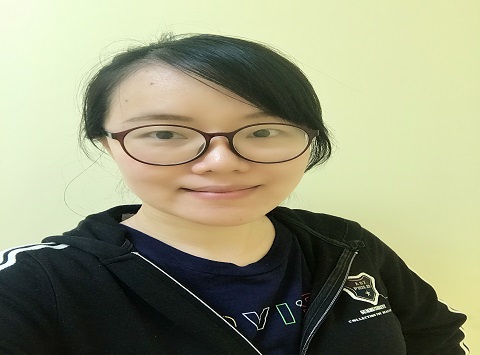
Xuan Luo
Flinders University - AustraliaDr. Xuan Luo has a biotechnology and nanotechnology background. She received her Ph.D. from Flinders University-2019. For her thesis on the fabrication of biomedical nano-materials using Vortex Fluidic Devices (VFD), she was awarded the Flinders University Ph.D. award in 2018. She then worked as a postdoc on vortex-fluidic-mediated processing on biomaterial composites for biocatalysis. In 2019 this research has resulted in an award of Overseas Travel Fellowship from the Australian Nanotechnology Network. Her current research program includes multiple projects to develop a platform with novel immobilization technology for the environmental and diagnostic industries. Specifically, she explores the effects of surface modification on the interaction between the biocomposites and the liquid environment mediated by the topological fluid flow of VFD.
Ananda Vallezi Paladino Lino
Federal University of São Carlos - Brazil
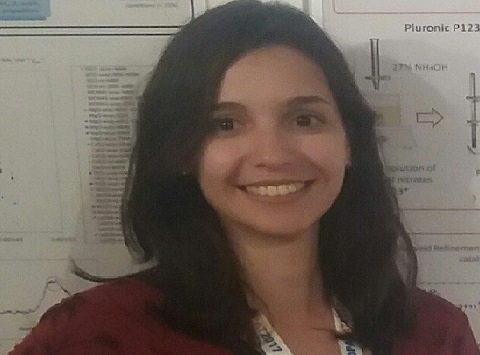
Ananda Vallezi Paladino Lino
Federal University of São Carlos - BrazilAnanda Vallezi Paladino Lino has graduated at State University of Maringa (2012) and received Master (2015) and PhD (2019) degrees at Federal University of Sao Carlos. She has experience on heterogeneous catalysis, methane reforming and CO2 conversion. Currently, she is postdoctoral researcher at Federal University of São Carlos.
Omar Alejandro Ramírez Garza
CINVESTAV-IPN, departamento de física - Mexico
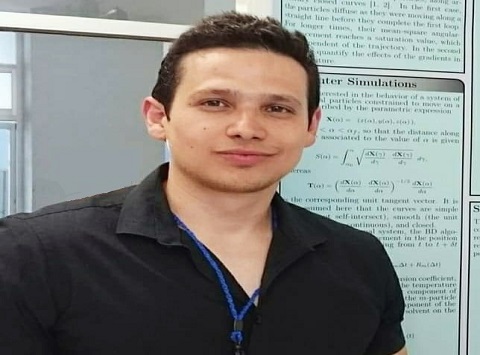
Omar Alejandro Ramírez Garza
CINVESTAV-IPN, departamento de física - MexicoOmar Ramírez has graduated from the Autonomous University of Nuevo León (2011), and received a Master's degree (2015) at the Center for research and advanced studies of the IPN; currently, he is finishing his Ph.D. degree (06/2021) at the same center. He has experience performing simulations of confined colloids, being one of the creators of two geometric algorithms that can simulate those systems. Involving high-performance computing, soft condensed matter, machine learning algorithms, and differential geometry. He also has experience in the automatization industry and with a wide range of programming languages.
Dat Nguyen
University of California, Irvine - USA
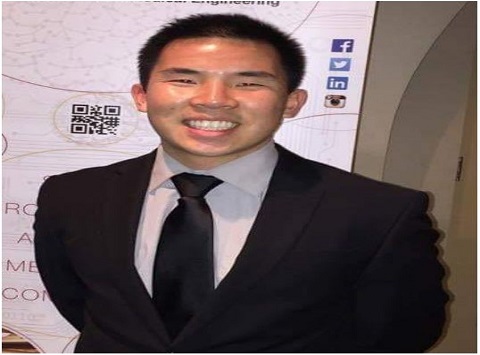
Dat Nguyen
University of California, Irvine - USADat Nguyen is a biomedical engineering Ph.D. student at the University of California, Irvine. Dat received his Bachelor of Science degree in chemical engineering at California State University, Long Beach and his Master’s Degree in biomedical engineering at the University of Southern California. Dat has been rewarded the Cardiovascular Applied Research and Entrepreneurship Fellowship – NIH T32 Grant and the NSF: Integrative Graduate Education and Research Traineeship (IGERT) Biophotonics Across Energy, Space, and Time training grants to bridge the gap between optical technologies and translational medicine. Dats work focuses on developing implantable sensors that use optical techniques to continuous measure analytes.
Dirk Guldi
Friedrich-Alexander-University - Germany
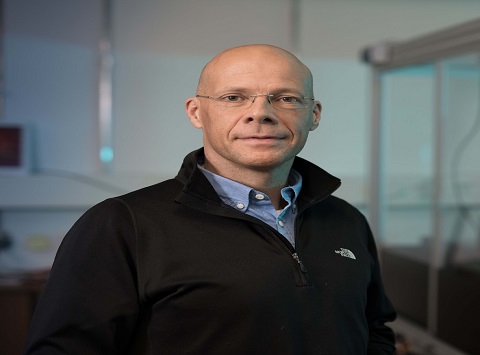
Dirk Guldi
Friedrich-Alexander-University - GermanyKeynote
Dirk M. Guldi completed both his undergraduate studies (1988) and Ph.D. (1990) at the University of Cologne (Germany). Since 2004, he is a Full Professor in the Department of Chemistry and Pharmacy at the Friedrich-Alexander University in Erlangen. Since 2018, Dirk M. Guldi is a Co-Editor in Chief of Nanoscale and Nanoscale Horizons and he has been named among the world’s Highly Cited Researchers by Thomson Reuters. The Guldi lab and its network belong to the cutting edge of worldwide research in solar-energy conversion with expertise not only in advanced photon- and charge-management, but also in the synthesis of tailored materials and molecular modeling.
Prakash Parajuli
University of Illinois at Chicago - United States
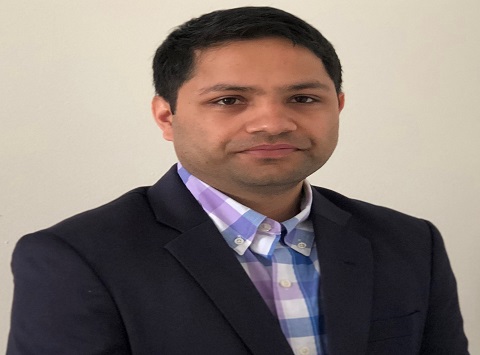
Prakash Parajuli
University of Illinois at Chicago - United StatesDr. Prakash Parajuli obtained his BSc (Physics) from Tribhuvan University, Nepal and his Ph.D. from the University of Texas at San Antonio. Currently, he is working as a postdoctoral research associate at the University of Illinois at Chicago, where he is recognized for his research contributions in electron microscopy, material science and multivalent battery system. His main interest lies towards the utilization of aberration-corrected STEM/EELS/EDS to probe the atomic- scaled structure, chemistry, and defects of materials to elucidate and enhance the nanomaterial functionality, and the development and application of advanced in situ electron microscopy characterization techniques to probe the mechanisms and kinetics of materials transformations.
Yeyoung Ha
National Renewable Energy Laboratory - United States
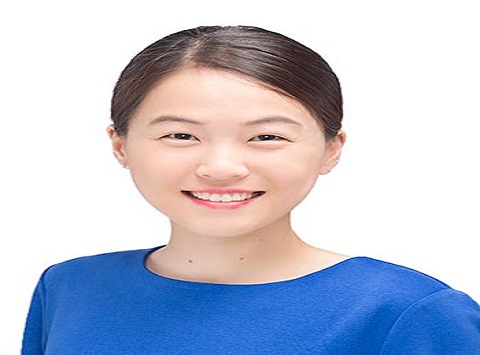
Yeyoung Ha
National Renewable Energy Laboratory - United StatesYeyoung Ha is a staff scientist in the interface and surface science research group at NREL. Her current research includes identifying failure mechanisms of lithium (Li)-ion battery technologies targeted for various applications, ranging from electric vehicles to stationary storage, as well as evaluating the thermal behavior of battery components toward the development of safer Li-ion batteries. She received her doctorate in chemistry from the University of Illinois at Urbana-Champaign under the supervision of Professor Andrew A. Gewirth. Her doctoral studies focused on electrochemical interfaces in energy conversion and storage systems. Prior to joining NREL, she worked at LG Chem as a research scientist on developing next-generation batteries.
Nastaran Salehi Marzijarani
Merck - United States
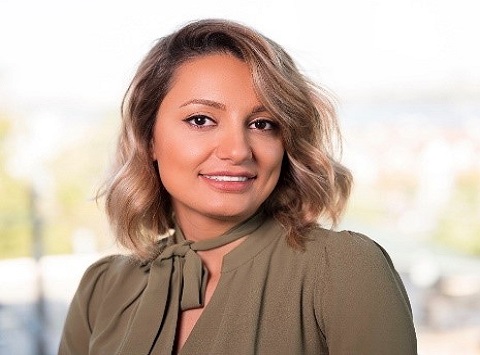
Nastaran Salehi Marzijarani
Merck - United StatesDr. Nastaran Salehi Marzijarani obtained his BSc (Chemistry) from the Sharif University of Technology in Iran, her Master’s degree from Western Michigan University, and her Ph.D. from the Michigan State University. She joined Merck & Co., Inc., in 2016 and worked in the Process Chemistry department and recently she has joined the Chemical Engineering group as part of a one-year rotation. During her career, she worked on the development of a commercial manufacturing process for multiple projects to design the most direct method to convert commodity chemicals into the desired molecules, maximizing the access of our medicines to patients worldwide, and influencing the field of synthetic chemistry.
Derek Rhoades
The Scripps Research Institute, La Jolla - United States
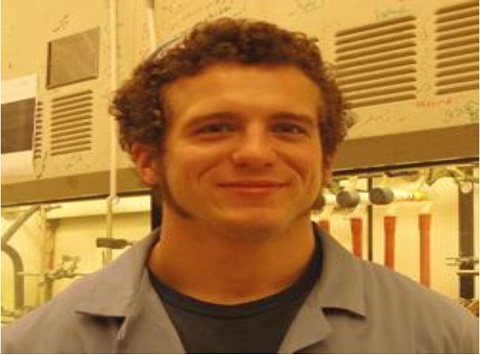
Derek Rhoades
The Scripps Research Institute, La Jolla - United StatesDerek Rhoades studied chemistry at the University of California, San Diego (UCSD), where he received his doctoral degree after carrying out research in natural product total synthesis under the guidance of Professor K. C. Nicolaou. He continued to pursue his passion for synthetic organic and medicinal chemistry at Rice University and the Texas Medical Center and recently reported the first complex natural product total syntheses at Baylor College of Medicine as an American Cancer Society postdoctoral fellow. He is currently conducting research in chemical biology at The Scripps Research Institute under the mentorship of Professor Jeffery W. Kelly.
Manishkumar Shimpi
Stockholm University - Sweden
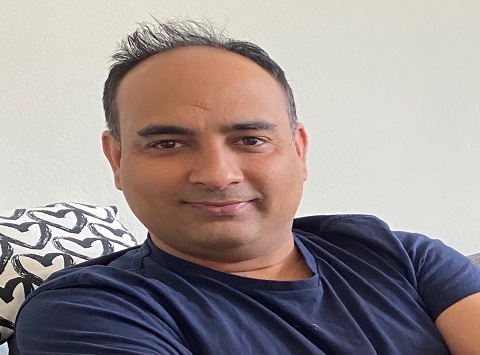
Manishkumar Shimpi
Stockholm University - SwedenManishkumar Shimpi has completed his Ph.D. in August 2010 from the National Chemical Laboratory, University of Pune, India, where he worked in the areas of development of supramolecular complexes and coordination assemblies by molecular recognition studies where the X-ray diffraction technique was the main tool to characterize such supramolecular assemblies. He selected under Knut och Alice Wallenberg (KAW) Foundation (L-LEAP group) which brings unique opportunity to work with a multidisciplinary team of researchers from KTH Royal Institute of Technology, LTU Luleå University of Technology and SU Stockholm University. Their research focuses on the synthesis of high purity ionic liquids as advanced lubricants.
Takashi Tsukamoto
Johns Hopkins University - United States
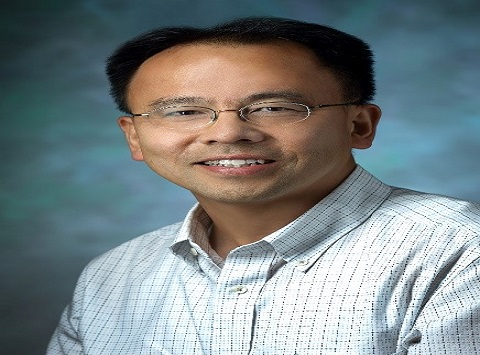
Takashi Tsukamoto
Johns Hopkins University - United StatesTakashi Tsukamoto is Associate Professor of Neurology at Johns Hopkins University and the Director of Medicinal Chemistry at Johns Hopkins Drug Discovery. He received his Ph.D. in Chemistry from the Tokyo Institute of Technology and pursued his postdoctoral studies at the University of Michigan. Prior to joining Johns Hopkins in 2009, Dr. Tsukamoto has held a variety of research positions in the pharmaceutical industry. During the course of his career, he has served as a lead medicinal chemist in a number of drug discovery projects, exploring new therapeutics for neurological disorders and cancer. He is the lead inventor of the cytidine deaminase inhibitor cedazuridine and its combination with decitabine, which received FDA approval as Inqovi in 2020.
Jiaquan Xu
East China University of Technology - China
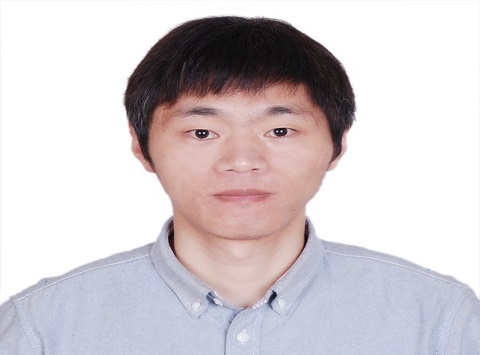
Jiaquan Xu
East China University of Technology - ChinaJiaquan Xu, associate professor, currently works at the International Joint Research Center for Mass Spectrometry and Instrumentation, East China Institute of Technology. His research interest is direct mass spectrometry analysis of miscellaneous samples. He published more than 20 papers indexed in SCI, including Angew. Chem. Int. Ed., Anal. Chem, etc.
Laurens Van Hoecke
University of Antwerp - Belgium
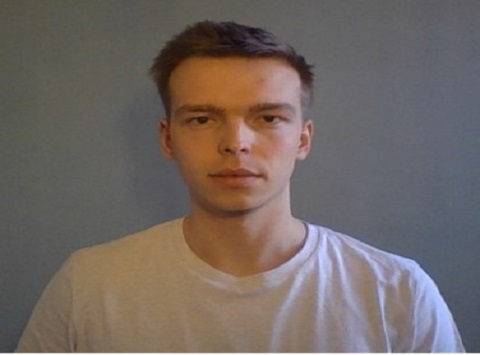
Laurens Van Hoecke
University of Antwerp - BelgiumLaurens Van Hoecke graduated in 2018 from the Master’s programme Bioscience Engineering Catalytic Technology at the KU Leuven in Belgium. After that he started his PhD at the University of Antwerp in the group Sustainable Energy, Air And Water Technology of professor Silvia Lenaerts working in collaboration with the Belgian Shipowner CMB on a review study of hydrogen storage for maritime applications. Currently, he is working under the supervision of prof. Patrice Perreault on the development of new reactor technologies for hydrogen release from LOHC.
Joaquín C. García Martínez
Universidad de Castilla-La Mancha - Spain
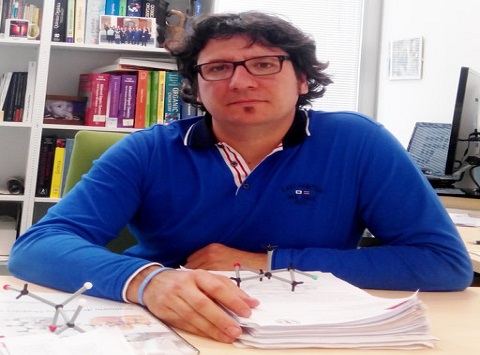
Joaquín C. García Martínez
Universidad de Castilla-La Mancha - SpainJoaquín C. Garcia-Martinez was born in Albacete, Spain, in 1975. He studied at the University of Castilla-La Mancha (UCLM), where he received his undergraduate degree in Chemistry in 1998. He obtained his Ph.D. degree cum laude from the same university in 2002. He has been working abroad in the Supramolecular Organic Chemistry research group of Prof. Bert Meijer at the Eindhoven University of Technology (TU/e) (The Netherlands) and Prof. Richard M. Crooks group at Texas A&M University (USA). In 2005, he returned to Spain as Ramon y Cajal researcher at the Organic Chemistry department of the School of Chemistry (UCLM) and he became Associate Professor in 2009. In 2010 he was awarded as the best youngest research (Luisa de Sigea prize 2010) and at the same time, he moved to Albacete to set up the School of Pharmacy at UCLM as Associate Dean until 2014. He leads the Pharmaceutical Organic Chemistry Research group since 2010.
Jingrun Ran
University of Adelaide - Australia
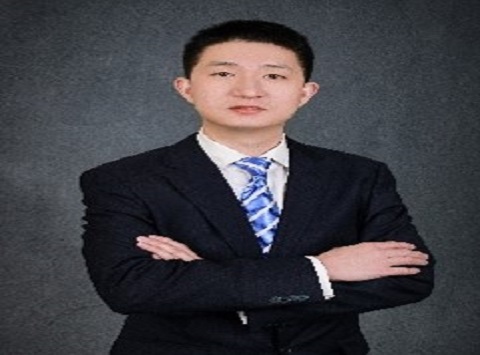
Jingrun Ran
University of Adelaide - AustraliaDr. Jingrun Ran received his Ph.D. degree in Chemical Engineering from the University of Adelaide. Now he is working as an ARC DECRA Fellow in Prof. Shi-Zhang Qiao's group, focusing on the atomic-level design and synthesis of photocatalysts for producing energy fuels and value-added chemicals using renewable solar energy. Dr. Jingrun Ran has been recognized as a Clarivate Highly Cited Researcher in 2020. He has published 41 papers in refereed journals, including Nat. Commun., Adv. Mater., Angew. Chem. Int. Ed., Energy Environ. Sci., Adv. Energy Mater., Chem. Soc. Rev., Sci. Adv. (over 10647 citations, h-index: 29 based on Google Scholar).
Susana Porcel García
Universidad Nacional Autónoma de México - Mexico
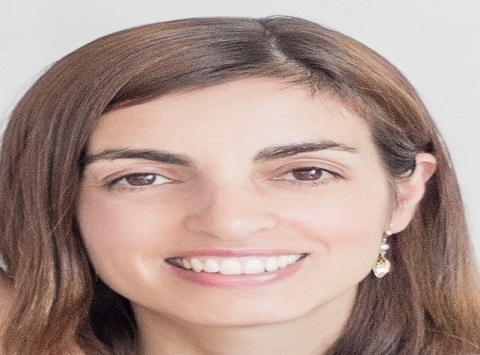
Susana Porcel García
Universidad Nacional Autónoma de México - MexicoDr. Susana Porcel García received her B.Sc. in Chemistry at the Universtity of Granada (Spain) in 2001. After a predoctoral stay (2001-2003) in the “Institut de Chimie des Substances Naturelles” (Gif-Sur-Yvette, France) with Dr. S. Arseniyadis she returned to Spain and completed her Ph.D. (2007) under the supervision of Prof. A. M. Echavarren. Next she pursued postdoctoral studies (2007-2010) at the “Laboratoire de Hétérochimie Fondamentale et Appliquée” (Universtiy of Toulouse, France) in the group of Dr. D. Bourissou. Finally, she joined the Institute of Chemistry at UNAM in september 2010 as a researcher.
Dusan Bratko
Virginia Commonwealth University - United States
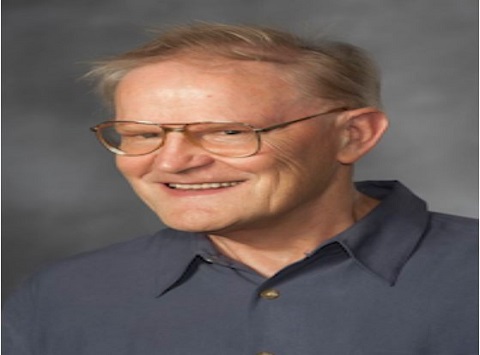
Dusan Bratko
Virginia Commonwealth University - United StatesDr. Dusan Bratko obtained Ph.D. in Physical Chemistry from the University of Ljubljana and is currently a Professor of Physical Chemistry at the Virginia Commonwealth University. He previously held positions at the Department of Chemistry, University of Ljubljana, and in the Department of Chemical Engineering, University of California at Berkeley. His research concerns statistical mechanics and molecular modeling of ionic solutions, colloids and interfacial phenomena of interest in nanoscience, energy, and materials engineering.
Krishnadas Kumaranchira Ramankutty
University of Geneva - Switzerland
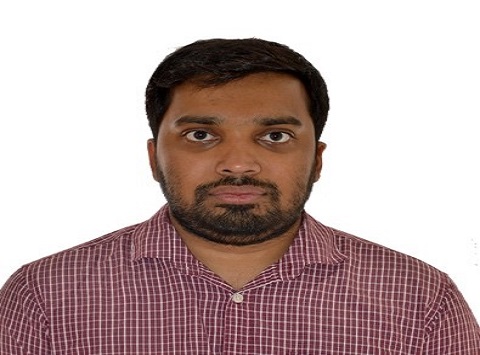
Krishnadas Kumaranchira Ramankutty
University of Geneva - SwitzerlandDr. Krishnadas earned his BSc degree in Chemistry from St. Thomas’ College, Thrissur, affiliated to Calicut University, Kerala. After earning an MSc degree (in Applied Chemistry) in 2010 from Cochin University of Science and Technology, Cochin, he joined IIT Madras for a Ph.D. under the supervision of Prof. Thalappil Pradeep. During his Ph.D., he investigated chemical reactions of atomically precise noble metal clusters. After finishing his Ph.D. in 2016, he continued as a post-doc at IIT Madras. Since October 2017, he is working at the University of Geneva, Switzerland as a post-doctoral researcher in the group of Prof. Thomas Buergi where he is currently investigating the chiroptical properties of noble metal clusters. He has published 16 research papers in peer-reviewed, high-impact journals.
Anna-Sophia Helena Hehn
University of Zurich - Switzerland
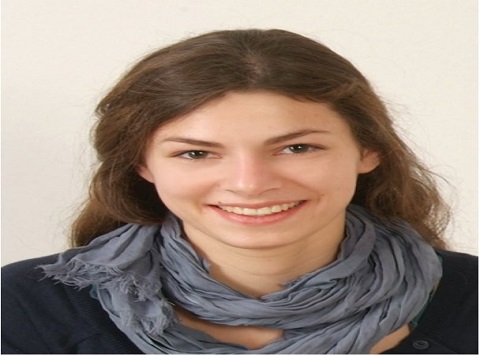
Anna-Sophia Helena Hehn
University of Zurich - SwitzerlandDr. Anna-Sophia Hehn studied Chemistry at the Karlsruhe Institute of Technology and the Free University of Amsterdam. She obtained her Ph.D. in Computational Chemistry at the Karlsruhe Institute of Technology under the supervision of Prof. Dr. Wim Klopper in 2017, working on explicitly correlated wave function approaches. Since 2018 she has joined the group of Prof. Dr. Jürg Hutter at the University of Zurich. Her current research is focused on the development of electronic structure methods for the description of excited state dynamics of condensed phase systems.
Kyungtae Kim
Los Alamos National Laboratory - United States
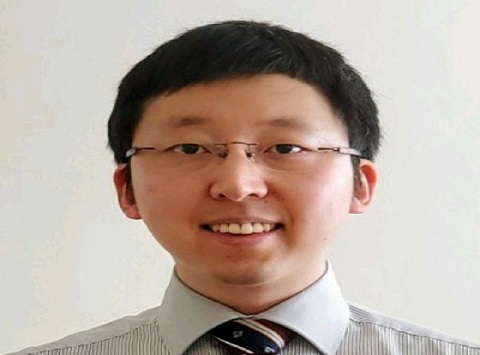
Kyungtae Kim
Los Alamos National Laboratory - United StatesKyungtae Kim is a Staff Scientist at the Center for Integrated Nanotechnologies (CINT) at Los Alamos National Laboratory. Kyungtae received his Ph.D. in Polymer Chemistry from Pohang University of Science & Technology (POSTECH), South Korea. Before joining CINT, he worked as a postdoctoral research associate in the Department of Chemical Engineering & Materials Science at the University of Minnesota. His research interests include (1) Precision synthesis of soft nano/microparticles made of polymers and organic materials; (2) Self-assembly of soft particles into complex ordered structures that resemble metal alloy phases; and (3) Fabrication of soft particle nanostructures with large-scale ordering and controlled defects.
Natalia Pacocha
Institute of Physical Chemistry Polish Academy of Sciences, Warsaw - Poland
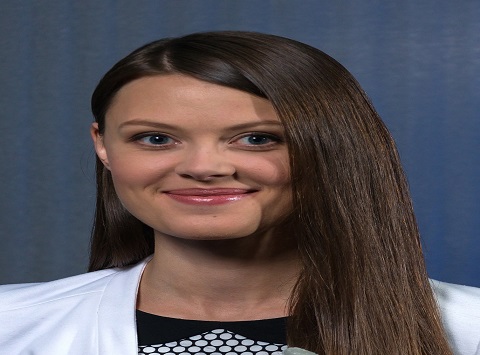
Natalia Pacocha
Institute of Physical Chemistry Polish Academy of Sciences, Warsaw - PolandNatalia Pacocha is a Ph.D. student at the Institute of Physical Chemistry Polish Academy of Sciences. She works in the Microfluidics and Complex Fluids Laboratory led by Professor Piotr Garstecki. Her research focuses on developing high-throughput methods for counting, identification, and antibiotic susceptibility testing of bacteria at the single-cell level. Mainly, she is interested in the analysis of phenotypic heterogeneity of bacterial response to antibiotics in isogenic bacterial populations.
Merlys Borges Martínez
University of Santiago de Chile - Chile
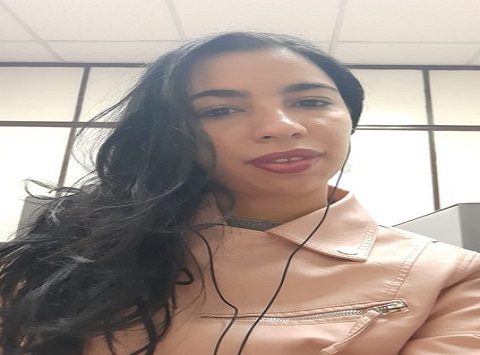
Merlys Borges Martínez
University of Santiago de Chile - ChileMerlys Borges Martínez is a postdoctoral researcher at the Universidad Autónoma de Chile, where he develops his Fondecyt postdoctoral project. In this project, he conducts quantum-mechanical studies of perovskite solar cells. He is also a part-time professor at the Faculty of Chemistry and Biology from the University of Santiago de Chile (USACH). He worked as a postdoctoral researcher in the Theoretical Chemistry group of Dr. Gloria Cárdenas at the USACH between September 2019 and March 2021. In this group, he carried out his doctoral thesis related to the quantum mechanical study of dyes for dye-sensitized solar cells (defended in August 2019). She is Cuban, obtaining in her country the degree of Bachelor of Radiochemistry. Once she graduated and before beginning her doctoral studies in Chile, she worked for more than four years in the radiopharmaceutical industry as a specialist at the Center for Isotopes of Cuba.
Letha Chemmalil
Bristol Myers Squibb, Devens - United States
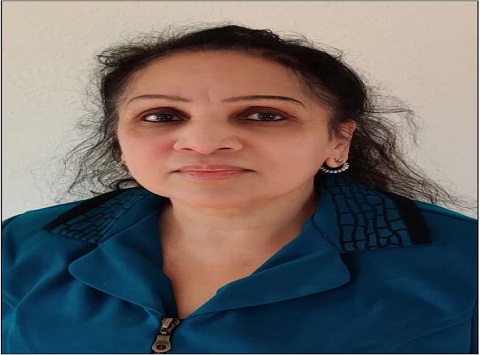
Letha Chemmalil
Bristol Myers Squibb, Devens - United StatesDr. Letha Chemmalil serves as an Associate Scientific Director at Bristol Myres Squibb in the Process Analytical Development group within the Biological Product Development division. Her prior affiliations include working for major biopharmaceutical companies such as Amgen, Genzyme, Seron and others. In addition to leading process analytical technology (PAT), Letha’s other areas of expertise include, analytical method development and protein characterization utilizing Mass Spectrometry (LC/MS & MALDI-TOF MS) and Biophysical Characterization (CD, DSC, FTIR, Fluorescence Spectroscopy, etc.). Her academic background is spanning in the disciplines of Chemistry and Chemical Engineering.


